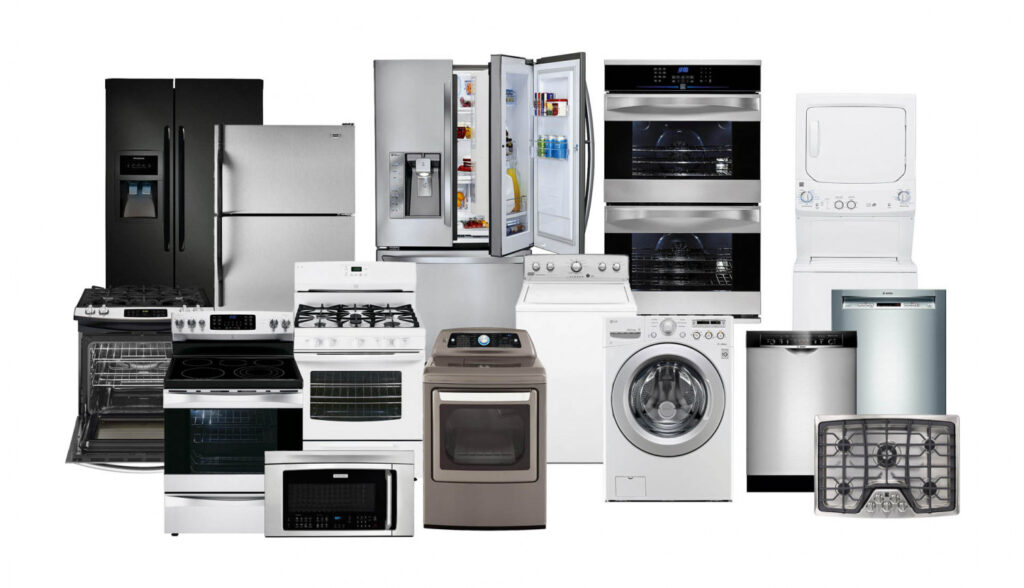
How the Weather Effect on Appliances(And What to Do About It)
In the modern, connected, convenience based homes we live in today, appliances are a must have. But what do you do when the weather gets extreme ferocious summers, cold winters, or damp rain heavy seasons? Astonishingly, your home appliances don’t stand idly by. They respond, occasionally radically, to changing environs. In this manual, we go in depth into the Weather Effect on Appliances what that actually entails, why it matters, and how you can safeguard your investments.
Let’s crack the code of climate related harm and find out how to modify your usage and maintenance plans for every season.
Weather’s Hidden Connection: Appliances
Weather and your dishwasher, refrigerator, and washing machine might not appear to have any obvious connection. Yet temperature fluctuations, humidity levels, and air quality have a significant Weather Effect on Appliances function and their longevity.
For instance:
High humidity can destroy electronic control boards.
Cold weather can freeze pipes within your washer.
Heat waves can put your fridge and AC in overdrive, wearing them out more quickly.
Knowing how Weather Effect on Appliances makes you make better maintenance and usage choices.
It’s important to understand the weather effect on appliances to avoid unexpected breakdowns.
Summer Heat and Appliance Stress
When temperatures rise above 30°C (86°F), your appliances don’t get a break. In reality, the summer months can cause:
1. Overworked Refrigerators
In high temperatures, your refrigerator works harder to keep food cool. This added strain leads to:
Increased electricity bills
Compressor fatigue
Reduced overall lifespan
Tip: Keep the fridge well-stocked (not empty or overloaded), ensure door seals are tight, and clean the condenser coils.

2. AC Units & Heat Pumps in Overdrive
Cooling systems are the most obvious victims of summer. Dirty filters, clogged coils, or low refrigerant levels make things worse. You’ll notice:
Reduced cooling efficiency
Loud sounds or unfamiliar odors
Greater risk of breakdown
Pro Tip: Have professional maintenance done towards the end of spring or early summer to get your unit ready for the hot season.
3. Washer & Dryer Overload
Summer also equals sweatier clothes, beach towels, and more loads of laundry. But drying units can overheat in poorly ventilated laundry rooms.
Solution: Make sure there is good airflow and clean the lint filter after each cycle.
Winter Woes: Appliances in Cold Weather
Cold snaps have their own set of problems. In certain areas, freezing temperatures pose a severe health risk to appliances.
1. Washing Machines & Frozen Pipes
Cold air will freeze the water within hoses, resulting in:
Pipe bursts
Internal valve damage
Leakage
Tip: Drain and disconnect outdoor water connections prior to winter. If your laundry room isn’t insulated, a small space heater may be installed.
2. Refrigerators in Unheated Spaces
Some individuals install additional fridges or freezers in basements or garages. However, when ambient temperature becomes low, compressors can get affected.
Solution: Opt for one that is garage-rated or move it indoors during winter.
3. Gas Ovens and Stoves
Gas cooking appliances will take longer to light up or function irregularly when it’s chilly, particularly if your kitchen isn’t well insulated.
Safety Tip: Get your gas lines checked every year and make sure your oven vents properly to avoid carbon monoxide accumulation.
Humidity Hazards: Moisture’s Stealthy Attack
Excessive humidity, prevalent in rainy or tropical weather, can destroy electronics and appliances.
1. Mold and Mildew
Washing machines, dishwashers, and air conditioners are all good candidates for mold growth in damp conditions.
Preventative Action:
Leave doors on washing machines open after use
Use vinegar based cleaners monthly
Dehumidify wet areas
2. Rust & Corrosion
Metal parts on your appliances such as dishwasher racks or stove knobs are subject to rust when they’re constantly moist.
Pro Tip: Spray anti-rust sprays and clean your appliances frequently.
3. Short Circuits
In abnormally high humidity, electrical parts are susceptible to breakdown, usually because condensation occurs on circuit boards.
Avoid it: Utilize surge protectors and store appliances in ventilated rooms.
Storm Season & Power Surges
Thunderstorms, hurricanes, and monsoon rains frequently cause:
Power outages
Voltage fluctuations
Electrical surges
These surges are the #1 cause of electronic board death in appliances.
What You Can Do:
Unplug appliances in storms
Buy surge protectors or whole-house surge protection
Install backup power sources like a generator or UPS
Preventive protection against weather-related electrical damage is the key to appliance longevity.
Appliance by Appliance Breakdown: What to Watch in Each Season
| Appliance | Summer Impact | Winter Impact | Humidity/Storm Risks |
|---|---|---|---|
| Refrigerator | Overworked, condenser strain | May malfunction in cold garages | Condensation issues |
| Washing Machine | Frequent use, mold growth | Frozen pipes | Mold, rust |
| Dryer | Overheating, fire hazard | Inconsistent heating | Lint blockage, overheating |
| Oven/Stove | Thermostat calibration errors | Gas ignition problems | Moisture in electronics |
| Dishwasher | Sensor issues due to heat | Less usage, drying issues | Mold, internal corrosion |
| Air Conditioner | Constant operation, clogged filters | Idle, needs winter prep | Mold, coil rust |
Tips to Weatherproof Your Appliances
Year-round protection for appliances doesn’t have to be overly complicated. Some seasonal adjustments and maintenance checks can do wonders:
1. Install Climate Control in Key Areas
Ensure your laundry room, garage, or basement is not subjected to extreme weather. Utilize:
Portable dehumidifiers
Room heaters
Ventilation fans
2. Clean & Inspect Regularly
Dirt, dust, and moisture get accumulated on appliances. Incorporate cleaning into your monthly regimen:
Vacuum fridge coils
Wipe dishwasher seals
Clean AC filters
3. Monitor Temperature and Humidity
Smart sensors can notify you when a room becomes too hot, cold, or humid. These avoid weather induced appliance malfunction.
4. Use Appliances Efficiently
Don’t overload dishwashers and washers. In extreme weather, run appliances off-peak (such as early morning or late night) to ease the load.
Smart home planning can reduce the negative weather effect on appliances in every season.

Eco-Friendly Weather Protection
Being weather conscious isn’t all about protection sustainability comes into play too.
Money saving energy efficient home appliances not only save money but also work better in harsh weather conditions.
Smart appliances automatically adjust cycles depending on temperature and humidity.
Renewable use such as full loading and off-peak running reduces stress and increases appliance lifespan.
Be the green choice when replacing or repairing your appliances.
Regular maintenance helps minimize the weather effect on appliances throughout the year.
When to Hire a Pro
Occasionally, damage is too serious for home repair. Call a pro if:
Your appliance smells like it’s burning or is smoking
Water is leaking around your washer, dishwasher, or refrigerator
Your AC or oven won’t respond to controls
You hear banging, grinding, or buzzing
Understanding the weather effect on appliances empowers homeowners to take proactive, season-specific care.
For local, weather aware appliance repairs in Victoria, check out Quick Fix Appliance Experts for dependable support year-round.
Final Thoughts Weather Effect on Appliances
The Weather Effect on Appliances is real and preventable. Whether it’s a heatwave stressing your fridge or a snowstorm freezing your washing machine’s pipes, small environmental changes can lead to major appliance headaches.
By being proactive with routine maintenance, seasonal adjustments, and intelligent use, you can give your appliances a second life and save you a lot of money in the long run.Understanding the weather effect on appliances is essential for maintaining their performance and longevity. By staying proactive, you can minimize the weather effect on appliances and protect your investment all year round.
To learn more about protecting your home systems, check out this comprehensive guide on the weather effect on appliances.
FAQs about Weather Effect on Appliances
Q1. Will hot temperatures damage my refrigerator?
Yes, extreme heat makes your fridge have to work harder and causes compressor failure in the long run.
Q2. What can I do to avoid moisture damage in appliances?
Dehumidify, clean often, and don’t put appliances in extremely wet locations.
Q3. What if I run my washer in freezing weather?
Pipes freeze and burst, which can lead to leaks and possibly costly repairs.
Q4. Are there some appliances that are more weatherproof than others?
Yes, especially new models that are designed for garages or unheated rooms check the description before purchase.
Q5. Do I need to unplug appliances during storms?
Yes, particularly high-value electronics and appliances with circuit boards. Surge protectors are an excellent substitute.



